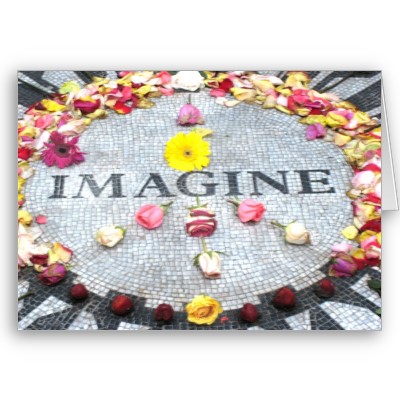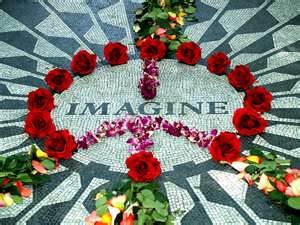Moderator’s Note: We here at FAR have been so fortunate to work along side Carol Christ for many years. She died from cancer in July, 2021. Her work continues through her non-profit foundation, the Ariadne Institute for the Study of Myth and Ritual and the Goddess Pilgrimage to Crete. To honor her legacy, as well as allow as many people as possible to read her thought-provoking and important blogs, we are pleased to offer this new column to highlight her work. We will be picking out special blogs for reposting. This blog was originally posted March 23, 2013. You can read it long with its original comments here. Carol provides links to the three posts of hers that we have reposted recently.

There are many reasons for women, slaves, and the poor to rebel against domination and unjust authorities in patriarchal societies. But we should not assume that there are any reasons to rebel against domination where no domination exists or to rebel against unjust authority in societies where there are no unjust authorities.
In response to my recent series of blogs on patriarchy as a system of male dominance created at the intersection of the control of female sexuality, private property, and war (Part 1, Part 2, Part 3), I was asked if there is an injustice inherent in matriarchal societies that caused men to rebel and create patriarchy.
The assumption behind this question is that if women are dominated by men in patriarchal societies, then men must have been dominated by women pre-patriarchal societies. Lurking behind the question is the further assumption that there must have been “a good reason” for the development of patriarchy. The idea that there is “no good reason” for patriarchy to exist–if “good” means fair and just–is just too painful for many of us to want to consider it.
The missing link is our inability to imagine societies without domination.
Matriarchal societies have 4 characteristics in common:
1) They practice small-scale agriculture and achieve equality through gift-giving as a social custom.
2) They are egalitarian, matrilocal, and matrilineal. Women and men are defined by their connection to the maternal clan which holds land in common.
3) They have well-developed systems of consensus decision-making that insure that everyone’s voice is heard and considered.
4) They honor principles of care, love, and generosity which they associate with motherhood and teach both genders to express. They often view the Earth as a Great Mother.
What would it be like to live in a “matriarchal” “society of peace”?
As a child, you would not have to fight with your sisters or brothers for your father’s or your mother’s attention. Both girls and boys would be equally loved and cherished by their mothers and grandmothers and by their uncles and great-uncles. Both girls and boys would know that they would always have a place in the maternal clan. As a boy or a girl you would never have to “separate from” or “reject” your mother in order to “prove yourself as an individual” or in order to “grow up.” You could grow up without severing the bond with the ones who first loved you and first cared for you.
You would be raised in a large family with sisters and brothers and cousins, all of whom you would consider your siblings. You would never feel lonely. You would not be taught to compete with your siblings. You would never be hit by or hit others, because violent behaviors would not be considered appropriate in families.
When you got old enough to have sex, you could have all the sex you wanted. You would learn that the purpose of sex is pleasure and enjoyment. When you or your partner no longer wanted to have sex with each other, you could separate and find other partners.
There would be no need for families to worry about their children’s interest in sex. As all children have mothers and as all mothers have homes in their maternal clans, there would be no “illegitimate children,” no “bastards,” no “loose women,” no “sluts,” and no “whores.” As sex would be free, there would not be any need for prostitution.
Children born of sexual relationships would find their home in their maternal family. Mothers would be helped in the raising of children by their sisters and brothers, by their mothers and grandmothers, and by their aunts and uncles. A young woman pregnant or with a child would never be cast out, nor would she ever be expected to “make it on her own.”
With so much help, women would be able to work “outside the home” in the communal fields along with their kin. Mothers would not be “cooped up” or “closed in” with children. “The problem with no name” described by Betty Friedan would not exist. Mothers who were not dominated, lonely, or depressed, would not feel any need to “take their unhappiness out” on their children.
A young man would not be responsible for “providing for” his children, as this would be the responsibility of the mother clans. A young man would contribute to his clan and would help his sisters and female cousins to care for their children. These children would look up to him as their male “role model.” Men might work with their mothers and sisters in the fields or undertake building projects or take charge of trading with other clans near and far.
Whether you were a girl or a boy, a man or a woman, you would always know that you were loved. You would be taught to be loving and generous and to care for others. You would not be taught to compete with others, to gloat, or to hoard. If you had a skill, you would be encouraged to develop it, but you would not be encouraged to think you were better than others because you had something they did not.
As a girl or a boy, a young woman or a young man, you would be taught to respect your elders, especially the oldest grandmothers and great-uncles. However, even they would not “lord it over” you, because your clan would have well-developed democratic systems of consensus which would allow everyone’s voice to be heard before any major decisions were made.
Surely there would have been conflicts, jealousies, and misunderstandings in societies of peace. But when conflicts occurred, they would not have been resolved by violence as everyone would have been taught that sharing and generosity of spirit are the best ways to resolve conflict.
Societies of peace are so far from our own, and so uncannily attractive, that many people would prefer to think that they have never existed. Yet societies of peace have existed on every continent of the planet. They exist today in various degrees among the Iroquois, the Zapotecs , the Kuna, the Shipibo, the Samoans, the Asante, the Khoisan, the Tuaregs, the Berbers, the Khasi, the Minangkabau, the Mosuo, and others.
I don’t know about you, but I would love to live in such a society. If we are looking for “reasons for” the existence of patriarchy, I don’t think the unhappiness of men in such systems is one of them. Boys and men were loved, honored, and treasured. They did not have to fight, go to war, or prove themselves in any way. They got all the sex they wanted. I assume they were very happy.
I love to imagine everyone on earth living in societies of peace where the values love, sharing, and generosity are understood to be the highest values. The “golden age” does not have to remain in our past. I dream that we can bring it into the future.
Imagine: A Matriarchal Vision
BIO: Carol P. Christ (1945-2021) was an internationally known feminist and ecofeminist writer, activist, and educator. Her work continues through her non-profit foundation, the Ariadne Institute for the Study of Myth and Ritual.
“In Goddess religion death is not feared, but is understood to be a part of life, followed by birth and renewal.” — Carol P. Christ




bring on the matriarchy 😊
LikeLike
It actually hurts to read this post because I can no longer imagine a just society, let alone an egalitarian one…there are small holes in this patriarchal culture where Indigenous peoples attempt to live in a loving relationship with the earth and each other but these people are losing ground as I write.
LikeLiked by 1 person
I would absolutely love to be able to live in a peaceful matriarchal society, but it doesn’t seem to be possible today as our democracy is being attacked by men and women alike with hate crimes and…..and…..well, it’s just too early in the morning for me to get started on why I wish Carol’s “imagine” could come true but likely won’t. Sigh. I’m sure we all miss Carol and her wisdom and insights. She was an excellent writer. Brightest blessings to her wherever she is today.
LikeLiked by 2 people
Barbara, I REALLY miss Carol’s insights – whenever I read some of these posts I miss her even more.
LikeLiked by 1 person
And imagine … where we would be as a species if all the people who had been butchered in the name of whatever the patriarchy decided to oppose, at any given moment, had lived full and fulfilling lives.
LikeLiked by 1 person
Well most societies in the Neolithic were matriarchal, focused on family, food and fertility. Their Supreme Beings were female, the Earth Mother Dana (pronounced ‘Donna’) and Sile (Shee-leh) the Universal Soul called in Britain ‘Sule’, in Germany Seele, in Gaul Celeste, in Rome Celestis and in Ireland Sheela.
The Warrior Revolution inspired by Zeus and the Gods of Olympus overthrew them in around 1250 BCE, creating King-led societies organised for war, conquest and plunder and ushering in the Greek Dark Age that lasted until around 600 BCE.
When our current war- and plunder-oriented society collapses later in this century the next Dark Age will be succeeded in about 600 years by societies organised on the matriarchal priorities of family, food and fertility instead of conquest and plunder.
LikeLiked by 1 person
I believe I can contribute to your question “there must have been a good reason for the development of patriarchy.” As a man and a feminist, I have read Homer and Virgil and their epics of rampant, triumphant masculinity.
I have also read the Irish Iliad the Tain (rhymes with ‘dawn’), the Cattle-Drove of Colne’ first told around the time of Homer and written down in Irish in the 8th to 11thC. It describes the transition from matriarchal to patriarchal society in a remote Celtic society on the edge of the world where matriarchy yet survived in the Homeric age. Gaelic matriarchy was still contending with Homeric patriarchy for control of society through ownership of its resource base and transportable ‘wealth on the hoof’, cattle.
Maeve the Queen of Connacht, contends with her husband Alill for dominance and leads an army to seize a prize bull from the Kingdom of Ulster. She unmistakably calls the shots despite her husband’s attempts to dominate her. You will get the picture from the first chapter, ‘The Pillow Talk’.
Maeve wins in the end, by using her female powers to suborn the best friend of the Ulster Achilles Cuchulan. The masculine hero thus succumbs to superior female intelligence and manipulation.
When the Christians wrote the story down they added a final battle between the bulls, to reinforce the masculine ethos. It was not in the original.
The name Maeve (in Irish ‘Medb’) means, literally, ‘Intoxicator’ (of men).
I was born a morning’s walk from Maeve’s homestead and stronghold Cruachan Ai (today Rath Cruachan) south of Elphin in County Roscommon, so I count myself a subject of Queen Maeve. Archaeology is now revealing the details of Maeve’s Rath.
LikeLiked by 1 person